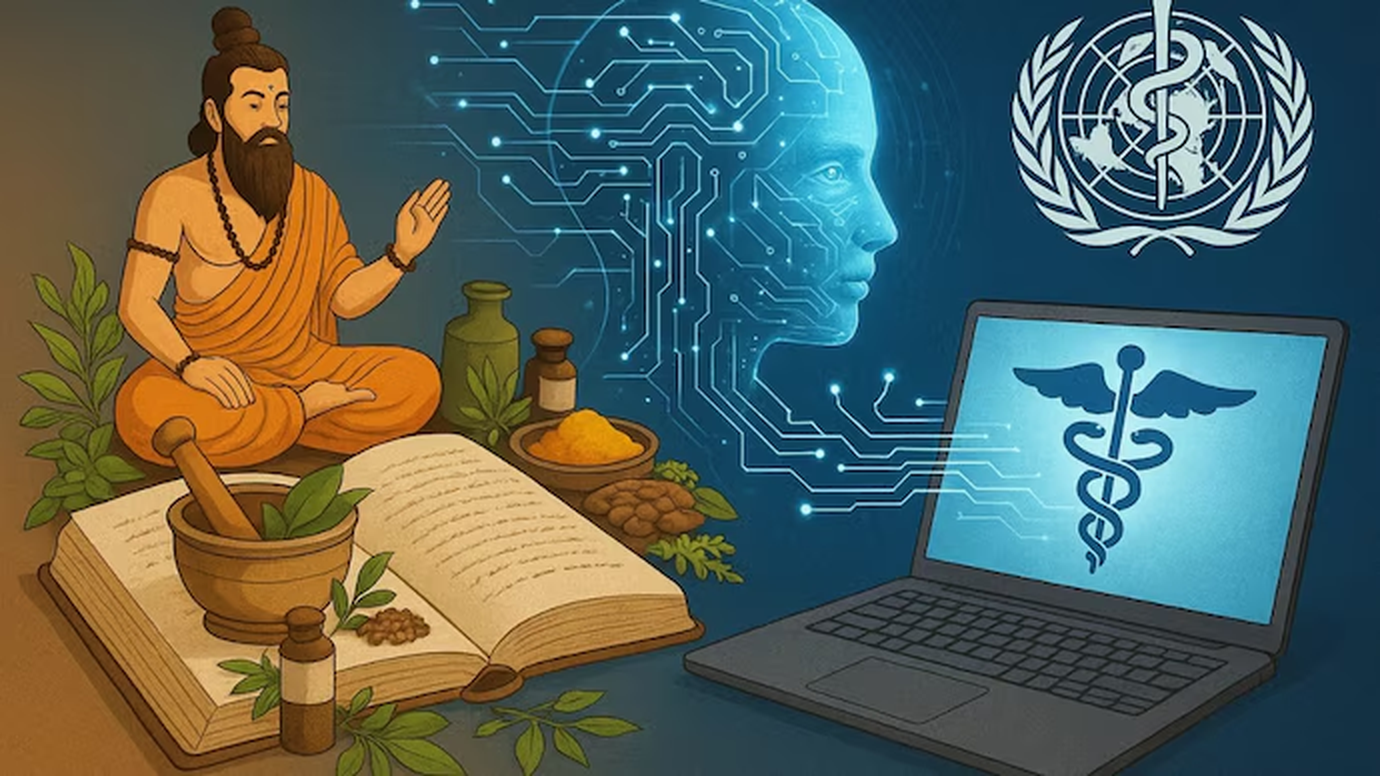India becomes first nation to digitise traditional medicine with AI-powered library
21-Jul-25 05:33:02

India Revolutionizes Traditional Medicine with AI-Powered Digital Library
India has achieved a global first by digitizing its vast traditional medical knowledge through an AI-powered library, the Traditional Knowledge Digital Library (TKDL). This groundbreaking initiative includes systems like Ayurveda, Siddha, Unani, Sowa-Rigpa, and Homoeopathy, marking a significant step towards preserving ancient health practices and fostering future research.
Protecting Ancient Wisdom with Modern Technology
For centuries, India's traditional medicine thrived on oral traditions, palm-leaf manuscripts, and classical texts. However, this lack of formal documentation often led to foreign companies patenting traditional herbal formulations that were already part of India's heritage. The TKDL was conceived to combat this exploitation. By translating and digitizing these formulations into multiple languages and formats accessible to patent offices, the library now provides concrete evidence that this knowledge is already in the public domain, effectively preventing its misuse.
The integration of Artificial Intelligence (AI) sets the new TKDL apart. This advanced database uses machine learning tools to meticulously organize complex information, identify patterns, and even discover potential connections between traditional remedies and modern illnesses.
AI and Ayurveda: Charting New Directions in Healthcare
The World Health Organization (WHO) has lauded India's efforts, recognizing it as a crucial development in integrating traditional and modern medicine globally.
One exciting development highlighted by the WHO is Ayurgenomics, an emerging field that combines genetic science with Ayurvedic principles of body types, or prakriti. Indian scientists are leveraging this to personalize treatment methods by integrating DNA data with ancient health categories. Furthermore, AI models are now being used to enhance long-standing Ayurvedic diagnostic methods like pulse reading and tongue analysis, providing assistance in clinical decision-making.
The Indian government, through the Ministry of Ayush, emphasizes that this initiative goes beyond mere preservation; it aims to propel traditional Indian systems into a future where tradition and technology converge. Union Minister Prataprao Jadhav noted that this aligns with a broader vision of making Indian systems more accessible and contributing to global health solutions, echoing Prime Minister Narendra Modi's vision of "AI for all" in healthcare.
India's TKDL offers a robust framework that could serve as a valuable model for other nations rich in traditional medicine cultures, such as China, South Korea, or Indonesia.
This bold move by India not only safeguards its invaluable ancient medical heritage but also positions it at the forefront of healthcare innovation. How do you think this digital transformation will impact the global perception and adoption of traditional medicine?
Source & Credit: IndiaToday